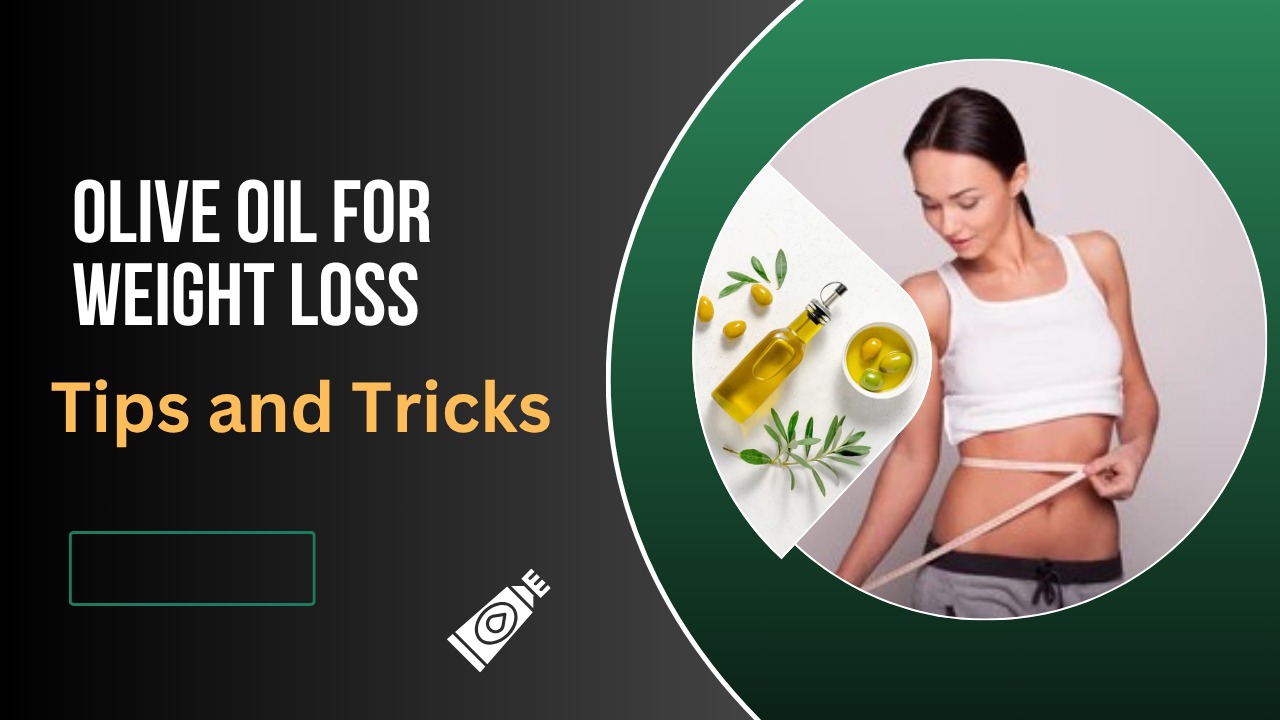Olive oil for weight loss for effective and sustainable ways to shed pounds, many overlook natural solutions like olive oil for weight loss. This golden oil, long celebrated in the Mediterranean diet, is more than just a cooking staple. Rich in monounsaturated fats and antioxidants, olive oil supports heart health, curbs appetite, and aids in weight management.
Unlike fad diets or chemical-laden supplements, olive oil for weight loss works by promoting satiety and balancing blood sugar levels. Just a tablespoon added to salads, vegetables, or consumed on an empty stomach can help reduce unhealthy snacking and regulate metabolism. Its healthy fats also support hormone function and nutrient absorption.
Incorporating olive oil for weight loss into your daily routine doesn’t require major dietary changes. Instead of cutting out fats entirely, opt for healthier ones like olive oil to nourish your body and promote long-term, natural fat loss.
This article explores the science behind olive oil and weight loss, how it works, and how you can harness its power with 8 practical tips for incorporating olive oil into your daily routine.
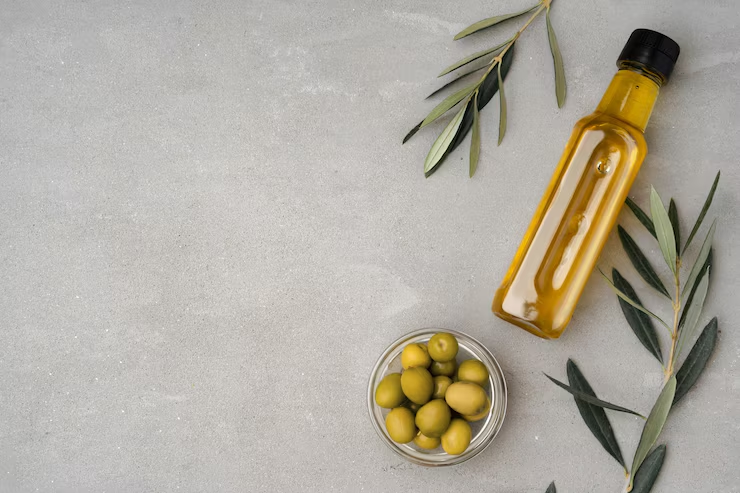
What is Olive Oil ?
Olive oil for weight loss has become increasingly popular, not only for its distinct taste but also for its health-promoting qualities. Extracted from the fruit of the olive tree (Olea europaea), this golden oil has been a central part of the Mediterranean diet for centuries—a diet linked to improved heart health, longevity, and weight control.
What makes olive oil for weight loss effective is its high content of monounsaturated fats and antioxidants. These healthy fats help keep you full longer, curb unhealthy cravings, and support metabolic processes essential for fat loss. Additionally, compounds like oleocanthal in extra virgin olive oil reduce inflammation, which is often associated with obesity.
Whether drizzled over salads, mixed into smoothies, or used in low-heat cooking, olive oil for weight loss offers a flavorful and wholesome way to enhance your meals while promoting a leaner, healthier body naturally and sustainably.
Extra Virgin Olive Oil (EVOO)
The most beneficial form of olive oil for weight loss is extra virgin olive oil (EVOO). This variety is produced using cold-pressing techniques, meaning it’s extracted without heat or chemical processes. As a result, EVOO retains the highest levels of antioxidants, polyphenols, and vitamins like E and K—nutrients that help fight inflammation, support metabolism, and contribute to fat burning.
Nutrient Profile and Health Benefits
EVOO is packed with monounsaturated fats, particularly oleic acid, which is known to support fat metabolism and reduce belly fat. Regular consumption of olive oil for weight loss may also help regulate blood sugar and suppress appetite—both of which are crucial in reducing caloric intake and managing body weight effectively.
Why It’s Better Than Processed Fats
Unlike processed oils, olive oil for weight loss doesn’t promote inflammation or harm metabolic health. Instead, it provides the body with essential fats that help improve nutrient absorption and hormonal balance. Replacing refined oils and butter with olive oil can be a simple, delicious way to support natural and sustainable weight loss.
Nutritional Profile of Olive Oil (Per 1 Tablespoon)
Calories: 119
Total Fat: 13.5g
Saturated Fat: 2g
Monounsaturated Fat: 10g
Polyunsaturated Fat: 1.5g
Vitamin E: 10% DV
Vitamin K: 10% DV
Antioxidants: Oleuropein, Hydroxytyrosol, Oleocanthal
Despite being calorie-dense, olive oil contains healthy fats that can actually promote weight loss when used strategically.
Can Olive Oil Help with Weight Loss ?
Promotes Satiety: Olive oil for weight loss works well because it’s rich in monounsaturated fats, which digest more slowly than carbohydrates. This slow digestion helps you feel full longer, reducing the likelihood of snacking or overeating between meals.
Enhances Fat Metabolism: Monounsaturated fats in olive oil support efficient fat metabolism. Olive oil for weight loss may also influence genes responsible for fat storage and fat burning, helping your body use stored fat more effectively as an energy source.
Reduces Inflammation: Chronic inflammation is a major factor in weight gain and obesity. Extra virgin olive oil contains anti-inflammatory compounds like oleocanthal, which can reduce internal inflammation and improve metabolic function—making weight loss more achievable.
Regulates Blood Sugar Levels: Adding olive oil for weight loss to meals helps lower the glycemic response of foods. This minimizes blood sugar spikes and crashes, which are common triggers for cravings and overeating.
Supports Hormonal Balance: Hormones such as leptin and ghrelin control feelings of hunger and fullness. Olive oil helps regulate these hormones, leading to improved appetite control and more consistent calorie intake.
Top Tips: How to Use Olive Oil for Weight Loss
Start Your Day with an Olive Oil Shot
One of the simplest ways to incorporate olive oil for weight loss into your routine is by taking a tablespoon of extra virgin olive oil first thing in the morning. This ancient practice, rooted in Mediterranean traditions, can help stimulate digestion, support liver function, and promote a feeling of fullness early in the day.
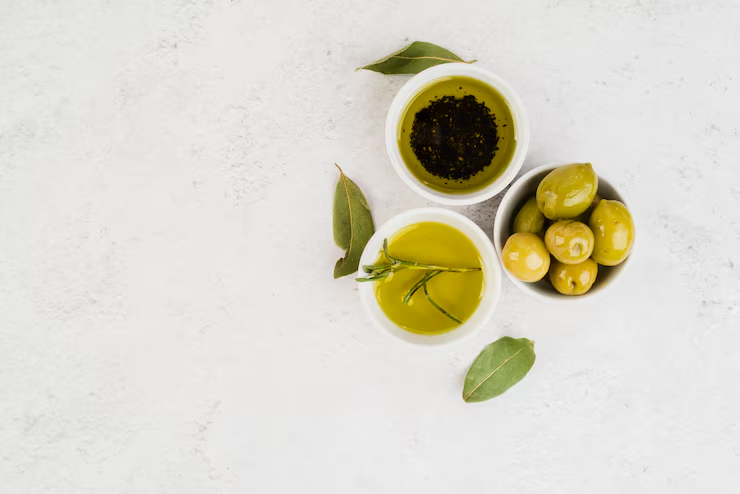
Consuming olive oil for weight loss on an empty stomach may help reduce cravings and curb unnecessary snacking. Its healthy monounsaturated fats slow down digestion, helping you feel satisfied longer while stabilizing blood sugar levels. This can make a noticeable difference in your overall calorie intake throughout the day.
To make the experience more pleasant, you can chase the olive oil with a glass of warm lemon water or mix it into a small smoothie. Over time, this small but powerful morning ritual can support your metabolism and contribute to long-term fat-burning and weight management.
Benefits:
Jumpstarts digestion
Reduces appetite throughout the day
Detoxifies the liver and digestive system
💡 Tip: Mix with a few drops of lemon juice for enhanced cleansing and taste.
Use Olive Oil as Your Primary Cooking Fat
Replacing processed oils and butter with olive oil for weight loss is a simple yet effective dietary upgrade. Extra virgin olive oil is rich in heart-healthy monounsaturated fats that not only support metabolism but also enhance nutrient absorption, especially of fat-soluble vitamins like A, D, E, and K.
Using olive oil for weight loss in daily cooking helps reduce the intake of unhealthy trans fats commonly found in margarine and refined oils. Whether you’re sautéing vegetables, roasting lean meats, or drizzling it over salads, olive oil adds flavor and promotes fullness—making it easier to control portions and cut down on unnecessary snacking.
By making olive oil for weight loss your go-to cooking fat, you align your meals with the proven benefits of the Mediterranean diet. This switch not only supports weight management but also contributes to overall cardiovascular and metabolic health in the long run.
Best Uses:
Sauté vegetables
Grill lean proteins
Bake healthy treats
Why It Works: Using olive oil helps you avoid trans fats and refined oils that contribute to weight gain and inflammation.
✅ Remember: Use EVOO at medium heat to preserve nutrients.
Drizzle Olive Oil Over Salads Instead of Creamy Dressings
One easy way to support your health goals is to use olive oil for weight loss in place of heavy, creamy salad dressings. Most commercial dressings are loaded with saturated fats, sugars, and preservatives that can add hidden calories and hinder fat loss efforts.
By switching to extra virgin olive oil for weight loss, you’re not only reducing your intake of processed ingredients but also adding beneficial fats that support digestion and nutrient absorption. A simple drizzle of olive oil, combined with lemon juice, vinegar, or herbs, creates a flavorful, natural dressing that enhances your salad without excess calories.
Incorporating olive oil for weight loss into your meals this way keeps your dishes light yet satisfying. The healthy fats promote satiety and help regulate appetite, making it easier to stay within your calorie goals and enjoy a delicious, guilt-free meal every time.
Salad dressings often hide unhealthy fats and sugars. Instead, make your own dressing with:
1 tbsp EVOO
1 tsp balsamic vinegar or lemon juice
A pinch of salt, pepper, and herbs
Result: A delicious, waistline-friendly dressing that enhances satiety and nutrient absorption from vegetables.
Add Olive Oil to Smoothies
Adding olive oil for weight loss to your smoothies is a simple way to enhance their nutritional value while supporting your fat-loss goals. Just one tablespoon of extra virgin olive oil adds healthy monounsaturated fats that help keep you full and satisfied for longer periods, reducing the urge to snack later.
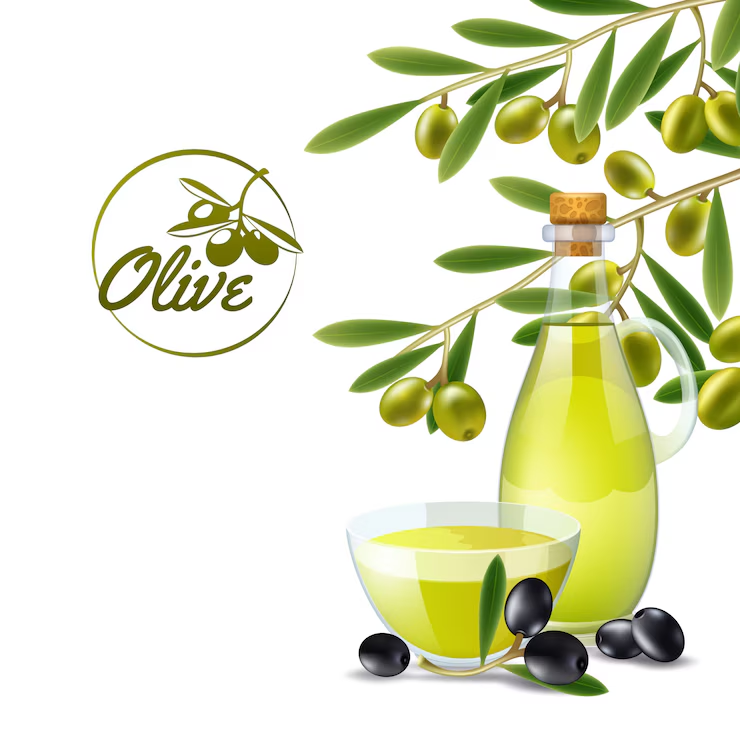
Incorporating olive oil for weight loss into fruit or green smoothies also improves the absorption of fat-soluble vitamins like A, D, E, and K. These vitamins play a role in metabolism, energy production, and hormone balance—key factors in effective and sustainable weight management.
For best results, blend olive oil with ingredients like spinach, banana, berries, and almond milk. It adds a subtle, smooth texture without altering the flavor much. Including olive oil for weight loss in your smoothie routine is an easy and delicious way to make your meals more filling and metabolically supportive.
Benefits:
Smooth texture
Sustained energy
Reduced sugar crash
🥬 Try this smoothie: Spinach, cucumber, lemon, green apple, ginger, and a spoonful of EVOO.
Use Olive Oil for Intermittent Fasting
If you practice intermittent fasting, incorporating olive oil for weight loss can help enhance your results without breaking your fast. Taking a small amount—like a teaspoon or tablespoon—of extra virgin olive oil during your fasting window may help reduce hunger, stabilize energy levels, and support fat metabolism.
Olive oil for weight loss is rich in monounsaturated fats, which digest slowly and help control appetite. Unlike carbs or protein, fats like olive oil don’t spike insulin levels significantly, making them more compatible with fasting protocols. This makes it easier to extend your fasting period without feeling drained or overly hungry.
You can consume olive oil on its own or add it to black coffee, tea, or warm water with lemon. This approach can help reduce cravings while keeping your body in a fat-burning state, making olive oil for weight loss a powerful ally during intermittent fasting routines.
If you practice intermittent fasting, consuming a spoonful of olive oil during fasting hours can:
Keep hunger at bay
Maintain ketosis (if on keto)
Provide clean-burning energy
This is especially useful for those on a low-carb or ketogenic diet.
Replace High-Calorie Sauces and Butter with Olive Oil
One of the easiest and most effective dietary swaps is replacing high-calorie sauces and butter with olive oil for weight loss. Butter and creamy sauces often contain saturated fats, added sugars, and excess calories that can quickly derail your weight loss goals.
Using olive oil for weight loss not only reduces these empty calories but also provides your body with healthy fats that support metabolism and satiety. Olive oil is especially versatile—it can be drizzled over steamed vegetables, mixed with herbs for a flavorful dip, or added to pasta dishes for a rich, satisfying taste without the heaviness of cream-based sauces.
By making this simple substitution, you’re not only cutting back on unhealthy ingredients but also enhancing your meals with antioxidants and heart-healthy fats. Incorporating olive oil for weight loss into your cooking routine is a smart and delicious way to stay on track with your health and fitness goals.
Butter sauces and creamy spreads add hundreds of empty calories. Try using olive oil as:
A dip for whole-grain bread (with herbs and garlic)
A drizzle over roasted veggies
A base for marinades
This not only reduces calorie intake but also introduces healthier fats.
Practice Portion Control
While incorporating olive oil for weight loss into your diet has many benefits, it’s important to remember that even healthy fats are calorie-dense. One tablespoon of olive oil contains about 120 calories, so using too much can lead to unintentional weight gain if you’re not mindful of portions.
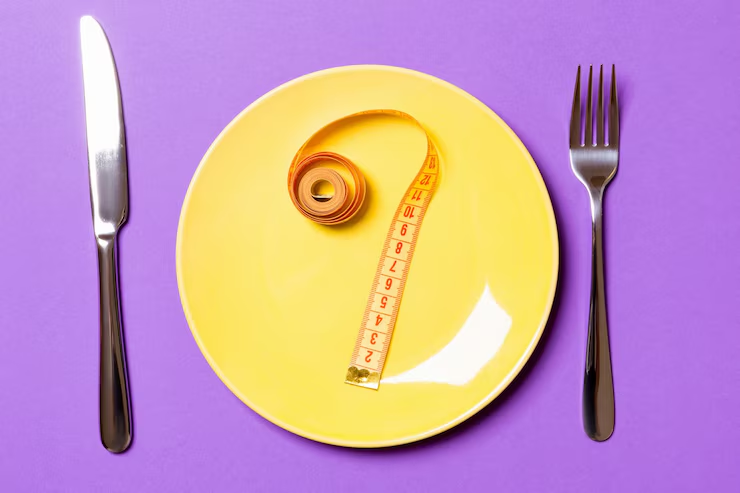
Practicing portion control with olive oil for weight loss means measuring instead of pouring freely. Use a teaspoon or tablespoon when adding it to salads, vegetables, or cooking, rather than eyeballing. This helps you stay within your daily calorie goals while still reaping the health benefits olive oil offers.
Balance is key—combine olive oil for weight loss with whole foods like vegetables, lean protein, and whole grains for meals that are both satisfying and supportive of your weight goals. By using just the right amount, you can enhance flavor, feel full, and still maintain a calorie deficit for sustainable fat loss.
Though healthy, olive oil is still high in calories. The key is moderation:
Use 1–2 tablespoons per meal
Measure instead of pouring freely
Keep a food diary if needed
Combining olive oil with mindful eating enhances its weight loss effects.
Combine with a Mediterranean Diet
One of the most effective ways to use olive oil for weight loss is by incorporating it into a Mediterranean-style diet. This eating pattern emphasizes whole, nutrient-rich foods like vegetables, fruits, legumes, whole grains, fish, and healthy fats—especially olive oil—as dietary staples.
The Mediterranean diet naturally includes olive oil for weight loss through salad dressings, roasted vegetables, sautéed greens, and even as a dip for whole-grain bread. This approach helps reduce processed foods and refined sugars, both of which can contribute to weight gain and inflammation.
By combining olive oil for weight loss with Mediterranean eating habits, you not only cut calories but also nourish your body with antioxidants, fiber, and heart-healthy fats. This synergy promotes steady, sustainable weight loss while supporting long-term health, energy, and satiety—making it one of the most balanced and enjoyable diets to follow.
Core components:
Fresh vegetables and fruits
Whole grains
Legumes and nuts
Moderate fish and poultry
Olive oil as the main fat
📚 Research Insight: A 2018 study in The Lancet Diabetes & Endocrinology found that people on a Mediterranean diet with olive oil lost more weight than those on a low-fat diet.
Scientific Studies Supporting Olive Oil for Weight Loss
🔬 PREDIMED Study – Spain (2013)
A large-scale clinical trial evaluated the effects of a Mediterranean diet enriched with olive oil on health outcomes.
Participants who followed the olive oil-rich Mediterranean diet lost more weight compared to those on a low-fat diet.
The study also noted a reduced risk of metabolic syndrome, a condition linked to obesity, high blood sugar, and heart disease.
This confirms that olive oil for weight loss is not only effective but also contributes to overall metabolic health.
🔬Harvard School of Public Health (2010)
Researchers tracked the diets and weight changes of women over an extended period.
Women who consumed higher amounts of monounsaturated fats, especially from olive oil, experienced better long-term weight maintenance.
This supports the idea that incorporating olive oil for weight loss can help prevent weight regain after initial fat loss.
🔬 European Journal of Nutrition (2020)
This study examined the body composition of overweight individuals who increased olive oil consumption.
Results showed improvements in waist circumference and overall body fat percentage.
Regular use of olive oil for weight loss helped participants reduce abdominal fat—one of the most harmful types of body fat.
Conclusion
Olive oil for weight loss is more than just a flavorful addition to your meals—it’s a proven, science-backed way to support healthy fat loss. Rich in monounsaturated fats and antioxidants, olive oil helps reduce inflammation, regulate appetite, and promote better fat metabolism, making it a smart ally in your wellness journey.
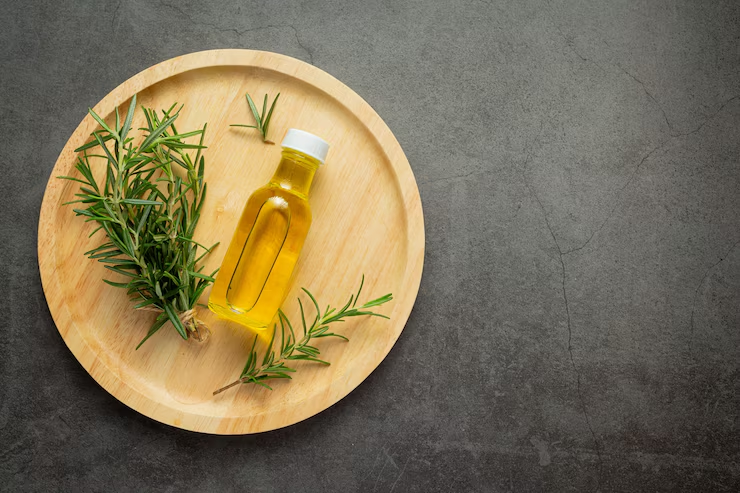
When used mindfully, olive oil for weight loss enhances satiety without the added sugars or unhealthy fats found in many processed foods. Whether drizzled over salads, blended into smoothies, or used in cooking, it adds both taste and nutrition to your meals while helping you stay on track with your calorie goals.
Of course, olive oil isn’t a miracle fix. Sustainable weight loss still depends on a balanced diet, portion control, and an active lifestyle. But with its rich flavor and health benefits, olive oil for weight loss can be a delicious part of your daily routine.
FAQs
Q1. Can olive oil really help with weight loss ?
Yes, olive oil for weight loss can be effective when used in moderation. Unlike processed fats, olive oil is rich in monounsaturated fats, which promote satiety and reduce hunger cravings. It also helps regulate blood sugar levels and improve fat metabolism, all of which are crucial in supporting healthy and sustainable weight loss.
Q2. Does olive oil reduce belly fat specifically ?
While no single food targets belly fat directly, olive oil for weight loss can help reduce overall body fat, including visceral fat. Its healthy fats and anti-inflammatory properties improve metabolic function and hormone regulation, which may lead to reductions in abdominal fat over time when paired with a healthy diet and lifestyle.
Q3. What type of olive oil is best for weight loss ?
When considering olive oil for weight loss, always opt for extra virgin olive oil (EVOO). It is minimally processed and cold-pressed, preserving its antioxidants, polyphenols, and vitamins. These compounds not only enhance metabolic health but also help combat inflammation and oxidative stress, which can hinder weight loss progress.
Q4. How should I consume olive oil for weight loss ?
You can consume olive oil for weight loss in a variety of ways—drizzle it over salads, use it for cooking, or even take 1 tablespoon on an empty stomach in the morning. The key is to replace unhealthy fats (like butter or processed oils) with olive oil and stay within your daily calorie limits.
Q5. How much olive oil should I consume daily for weight loss ?
A moderate amount—about 1 to 2 tablespoons per day—is recommended when using olive oil for weight loss. While olive oil is healthy, it’s still calorie-dense (about 120 calories per tablespoon), so mindful portion control is essential to avoid excess calorie intake.

